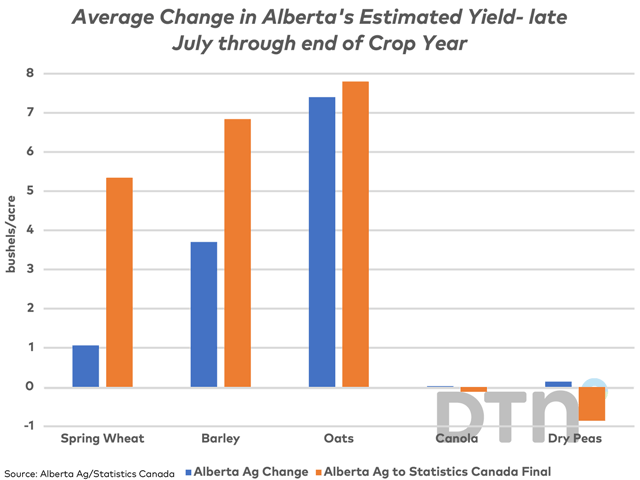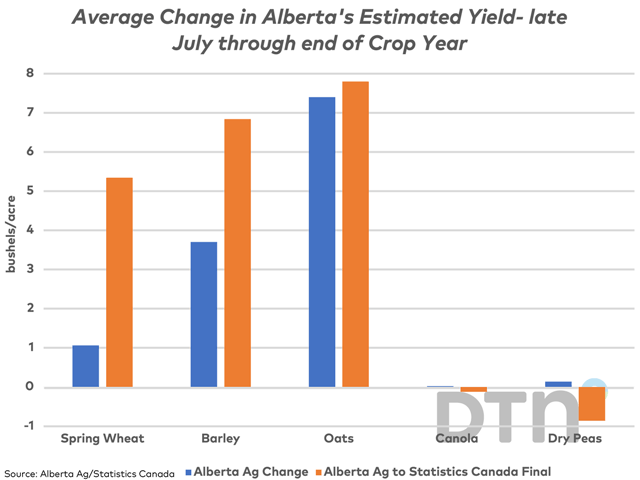Canada Markets
Estimated Crop Yields for Alberta Versus Final Estimates
As of July 25, Alberta Agriculture estimates the average dryland yield of 38.9 bushels/acre for spring wheat (46.1 bpa), 54.5 bpa for barley (60 bpa), 77.4 bpa for oats (73.7 bpa), 32.2 bpa for canola (37.6 bpa) and 34.5 bpa for dry peas (38.3 bpa), with the five-year average in brackets.
The province has estimated the dryland yield index at 85, or 15% below the normal five-year average. One year ago, this index was reported at 114 for this week, while during the 2021 drought year, this index was reported at 57.8. The current index lands at the mid-point of the two previous years.
P[L1] D[0x0] M[300x250] OOP[F] ADUNIT[] T[]
The blue bars on the attached graphic show the five-year average change in the province's dryland yield estimate from the late July estimate to the final Alberta estimate released late in the season for spring wheat, barley, canola and dry peas, while the three-year average for oats. The brown bars represent the five-year average change from Alberta Agriculture's late July estimate to the final Statistics Canada estimate. This is also calculated using a three-year average for oats.
While the July estimate from Alberta Agriculture has tended to be extremely close to the final estimates released for canola and peas, this is not the case for the cereal grains, where yields tend to grow larger.
A number of reasons may be behind this tendency, including 1) a tendency towards a conservative estimate released in July, 2) the inclusion of irrigated acres when assessed by Statistics Canada, 3) a reduction in acres intended to be harvested, such as in 2021 when the poorest yielding cereal crop acres may have been fed or grazed or 4) a late-season improvement in weather that leads to improved prospects for the crop.
Cliff Jamieson can be reached at cliff.jamieson@dtn.com
Follow him on Twitter @Cliff Jamieson
(c) Copyright 2023 DTN, LLC. All rights reserved.






Comments
To comment, please Log In or Join our Community .